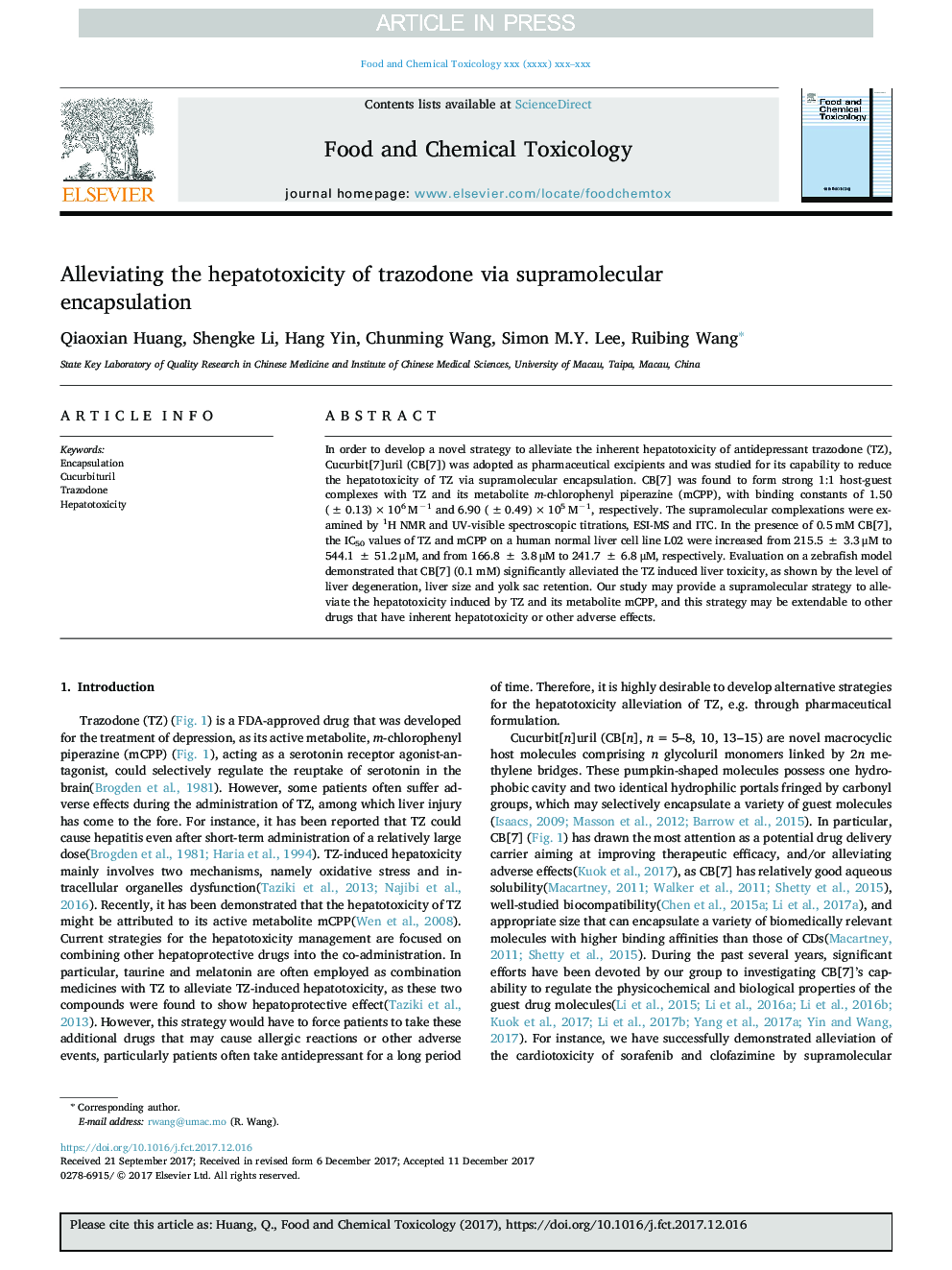| Article ID | Journal | Published Year | Pages | File Type |
|---|---|---|---|---|
| 8548432 | Food and Chemical Toxicology | 2018 | 6 Pages |
Abstract
In order to develop a novel strategy to alleviate the inherent hepatotoxicity of antidepressant trazodone (TZ), Cucurbit[7]uril (CB[7]) was adopted as pharmaceutical excipients and was studied for its capability to reduce the hepatotoxicity of TZ via supramolecular encapsulation. CB[7] was found to form strong 1:1 host-guest complexes with TZ and its metabolite m-chlorophenyl piperazine (mCPP), with binding constants of 1.50 (±0.13)â¯Ãâ¯106â¯Mâ1 and 6.90 (±0.49)â¯Ãâ¯105â¯Mâ1, respectively. The supramolecular complexations were examined by 1H NMR and UV-visible spectroscopic titrations, ESI-MS and ITC. In the presence of 0.5â¯mM CB[7], the IC50 values of TZ and mCPP on a human normal liver cell line L02 were increased from 215.5â¯Â±â¯3.3â¯Î¼M to 544.1â¯Â±â¯51.2â¯Î¼M, and from 166.8â¯Â±â¯3.8â¯Î¼M to 241.7â¯Â±â¯6.8â¯Î¼M, respectively. Evaluation on a zebrafish model demonstrated that CB[7] (0.1â¯mM) significantly alleviated the TZ induced liver toxicity, as shown by the level of liver degeneration, liver size and yolk sac retention. Our study may provide a supramolecular strategy to alleviate the hepatotoxicity induced by TZ and its metabolite mCPP, and this strategy may be extendable to other drugs that have inherent hepatotoxicity or other adverse effects.
Related Topics
Life Sciences
Agricultural and Biological Sciences
Food Science
Authors
Qiaoxian Huang, Shengke Li, Hang Yin, Chunming Wang, Simon M.Y. Lee, Ruibing Wang,
